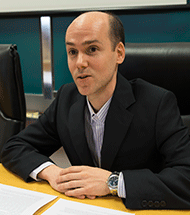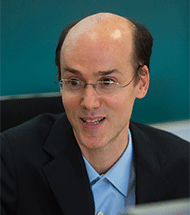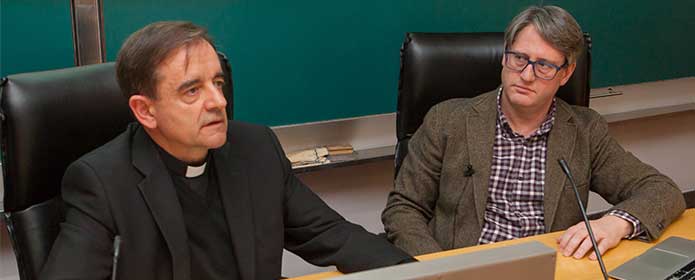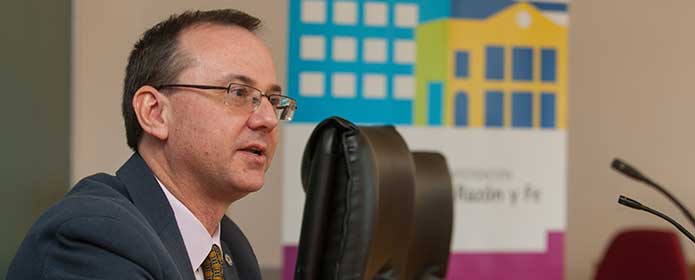Ignacio del Villar: "Modern society has projected the science-religion conflict, but the most important researchers in history did not conceive of a world without God".
D. in Telecommunications Engineering from the UPNA gives the seminar of the "group Science, Reason and Faith" (CRYF) on the role of Catholics in the scientific revolution of the last centuries.

"Although in modern society the myth of the science-religion conflict has been projected, some of the most important researchers in history and architects of the great scientific advances did not conceive of a world without God". This was stated by Ignacio del Villar, professor and doctor of Telecommunications Engineering at the Public University of Navarra (UPNA) at the seminar "The role of Catholics in the scientific revolution of recent centuries", organized by the group 'Science, Reason and Faith' (CRYF) of the University of Navarra.
Author of the book "Science and Catholic Faith: from Galileo to Lejeune", Professor Del Villar presented five examples of illustrious Catholic researchers who marked the evolution of science in recent centuries: Galileo Galilei, Alessandro Volta, Maria Gaetana Agnesi, Louis Pasteur and Jérôme Lejeune. "Although there are scientific questions in which religion cannot enter, faith gave these great figures a contribution to research with greater enthusiasm and helped them to orient their work", he assured.
In this regard, asked about the statements made by the North American sociologist Rodney Stark, in which he affirmed that the scientific revolution in Europe was the fruit of Christianity, Ignacio del Villar explained that these words come from a study that analyzed the 52 most notable scientists of the 16th and 17th centuries: "He found that 50 of them were devout Christians, even clergymen. If we take into account these statistics data , it can be affirmed that Christianity had a very important component in the scientific revolution, which originated in this period, in the context of a Christian Europe".
Likewise, del Villar affirmed that "science and religion are compatible, although each has its own sphere of action: science advances and religion financial aid to guide these advances for their proper use".
D. in Telecommunications Engineering and Professor of Electrical and Electronic Engineering at the Public University of Navarra (UPNA), Ignacio del Villar has developed his professional activity in the field of computer networks and renewable energies. Co-author of five books in the field of sensors and more than a hundred publications in international journals and conference proceedings, he is publisher Associate of the Journal of Optics and Laser Technology and the journal Sensors. He has made stays of research at the Institute d'Optique (Orsay - France) and at the department of Applied Physics of the Universitat de València.




